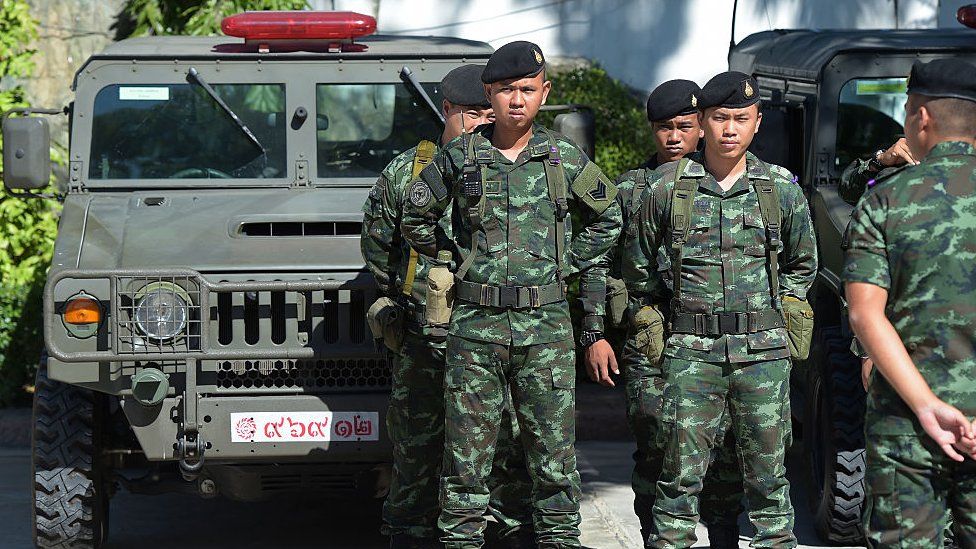Thailand's military allows 'culture of torture', says Amnesty
- Published

The military had seized power in 2014 after months of political unrest, saying it wanted to restore stability
Thailand's military government has allowed a "culture of torture" to flourish since assuming power, says a new report by rights group Amnesty International.
The report lists 74 alleged cases of torture, external and other ill-treatment, including methods such as beatings and waterboarding, by soldiers and police.
The military seized power in 2014 after months of political unrest, saying it wanted to restore stability.
It has denied allegations of torture.
"Our investigations into such allegations have shown no indication of torture, I have seen no indication of torture and the Thai people have seen no indication of torture," Gen Sansern Kaewkamnerd, a spokesman for the prime minister's office, told Reuters.
Amnesty was due to hold a press conference in Bangkok on Wednesday to release the report.
But it was cancelled at the last minute after officials warned that speakers could face arrest under labour laws.
"We are not singling out the Thai government," Amnesty's Asia media manager Omar Waraich told Reuters.
"We are here on business visas, we have an office in Thailand."
'No accountability'
Rafendi Djamin, Amnesty International's director for South East Asia and the Pacific, said Thailand "may claim to be tough on torture, but actions speak louder than words".
"[Its] military rulers have allowed a culture of torture to flourish, where there is no accountability for the perpetrators and no justice for the victims."
Thailand had earlier defended its rights records since the coup, with the coup leader and current Prime Minister Prayuth Chan-ocha saying that "every country has gone through rough times".
In a speech earlier this month he told countries criticising Thailand: "Don't tell us that we abuse rights, you also abuse the rights of others."
He has promised that an election will be held next year.
Since coming to power, the military government - officially known as the National Council for Peace and Order - has jailed critics, censored the media and cracked down on dissidents.
Article 44 of an interim constitution gives the government powers to "disrupt or suppress" anything deemed a threat to national security. It also allows for soldiers to detain people for up to a week without a warrant.
- Published31 March 2015
- Published9 August 2016
- Published8 September 2020